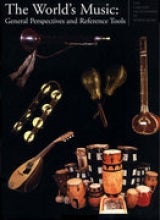Want to learn how to do research? Take Ethnomusicology 185.

Do you want to learn how to do research? Use everything from periodical indices to special collection/archive finding aids? Need to know how to cite what you find? In other words, do you want to become information literate? Take ESM 185, a new one-unit tutorial class in Ethnomusicology.
The final assignment will be to create a bibliography on any topic you choose. Yes, that's right. You choose the subject and we will discuss how to research (and cite) it in the classroom. If you are taking a class with a research paper assignment, ESM 185 would be a great fit for you. Are you an undergraduate considering graduate school? ESM 185 could give you a headstart on research methodology. Are you a graduate student who thinks they could use an assist in research? Take 185. It's one hour a week (technically, of course, 50 minutes).
How do I know this? Because I am the instructor (Adjunct Professor) for 185. Yes, consider this a shameless plug.
To quote the catalog: "Ethnomusicology 185. Information Literacy and Research Skills. (1) Tutorial, one hour. Limited to Ethnomusicology majors. Designed to assist students with becoming information literate. How to locate, identify, and critically evaluate and use print and electronic information effectively and ethically. P/NP grading."
So what does this mean? Information literacy is the ability to identify an information need, locate information efficiently, evaluate information, and use information effectively and ethically.
If you will allow me a brief history. In 1999, the UCLA Library conducted a study and discovered critical gaps in students' abilities to locate, evaluate and use information effectively and ethically. The report, Information Competence at UCLA: Report of a Survey Project, documented deficiencies in UCLA students’ understanding of resources and methods, and assessed the general level of information literacy as low. The Library’s Information Literacy Initiative was launched in late 2001 to organize a response to this issue. The goals of the Initiative are:
- To assess information literacy skills at UCLA
- To improve information literacy skills at UCLA
- To increase awareness of information literacy concepts among members of the UCLA community, within the context of changing information needs and environments
In response to this Initiative, the Ethnomusicology Archive Librarians discussed possible plans to offer a 1-unit information literacy (IL) course in Ethnomusicology, as either an add-on to an existing class or as an independent IL course. It took a while to move forward with this initiative, but, as you can tell from my shameless plug, I am delighted to report that for the academic year (2013/14) this long-held dream has become a reality and I will be teaching Ethnomusicology 185: Information Literacy and Research Skills.
I want to thank the Ethnomusicology faculty and the Dean's office for approving this course. I want to especially acknowledge and thank Professor Helen Rees for shepherding the class through the many hills and vales required for approval.
I encourage any student interested in learning how to research more effectively to consider taking the course. If you have any questions, please feel free to call, email or stop by the Archive and speak with me.
Allow me to end with a quote from UNESCO: "The Alexandria Proclamation of 2005 describes information literacy and lifelong learning as the 'beacons of the Information Society, illuminating the courses to development, prosperity and freedom. Information literacy empowers people in all walks of life to seek, evaluate, use and create information effectively to achieve their personal, social, occupational and educational goals. It is a basic human right in a digital world and promotes social inclusion in all nations.'"
And check out these publications from UNESCO:





